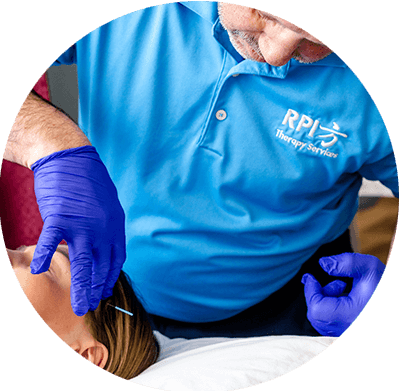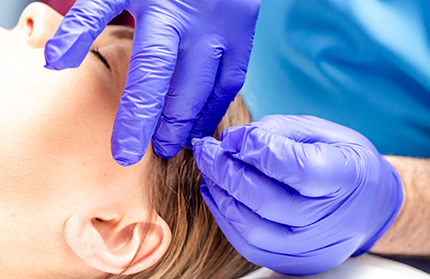Temporomandibular Joint (TMJ) Dysfunction
Manual Physical Therapy
The temporomandibular joints (TMJ) are used for many daily activities such as swallowing, chewing, talking, yawning, and sneezing. The two bones, the mandible and temporal bone, that form the TMJ are located on each side of the cranium. The inferior and the superior spaces of the joint are divided by a connecting disc.
A relatively common disorder called temporomandibular joint dysfunction (TMD) frequently avoids detection. The professionals at RPI Therapy Services have been trained to spot TMD by looking for symptoms like pain emanating from the joints, inability to open and close one’s jaw, distorted biting action, clicking or popping noises during chewing, and headaches. It is likely that we can correct TMD with fairly routine, noninvasive procedures.

- Trauma to the joint–blow to the jaw or head
- Excessive stress to the joint from gum chewing, fingernail biting, yawning, chewing on a pen, chewing on ice, and grinding teeth
- Arthritis of the TMJ
- Dislocation of the disc
- Myofascial pain dysfunction
- Postural abnormalities, especially with a forward head posture
- Uncomfortable bite
- Clicking or popping with opening or closing
- Dry or burning sensation in mouth
- Pain at rest or with opening/closing of jaw
- Decreased ability to open the jaw (hypomobility)
- Neck pain
- Hearing loss
- Tooth sensitivity
- Forehead or temple headache
- Buzzing or ringing in ears

